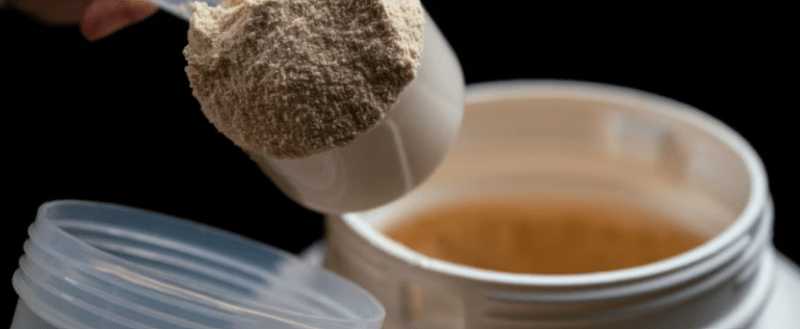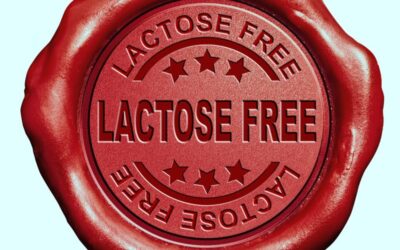Protein supplements are a mainstay in the fitness world. Whey protein shakes are practically synonymous with post-workout routines and protein bars are a popular snack option. Whether in the gym, sports shops or even in the supermarket, we’re bombarded with high protein products that promise to enhance your physique. But are these supplements truly necessary for exercise enthusiasts? Let’s delve into the pros and cons of protein supplements to help you decide if there is a place for protein powders in your fitness regime.
Who needs a high protein diet?
While everyone needs protein for basic health, some people may benefit more from a higher intake. Protein plays an important role in bone health and immune function and aids recovery from injuries or surgery. As we age, our bodies become less efficient at using protein, so older adults may need more to prevent muscle loss. Certain health conditions can also increase protein needs. People trying to lose weight can also benefit, as protein keeps you feeling fuller for longer, reducing cravings. And conversely, those needing to gain weight need a high protein and calorie diet. Exercise, whilst essential for health can put an extra strain on protein requirements, especially if this is intense. Therefore, athletes and bodybuilders aiming to build muscle mass need extra protein to fuel growth and repair. But is there a place for protein powders in the average fitness regime?
What are the pros for high protein options?
- Muscle building and repair: Studies suggest that consuming protein soon after a workout can help with muscle protein synthesis, the process by which your body builds muscle tissue
- Convenience: Protein powders offer a quick and easy way to boost protein intake after an intense workout. Shakes and bars are a quick and easy way to get a protein boost, but is this the best way to get extra protein?
- Absorption: Whey protein, a popular type of protein powder, is known for its rapid absorption, delivering essential amino acids to your muscles quickly after a workout
- Fortified options: Some protein powders are fortified with additional vitamins, minerals and creatine, potentially enhancing their overall nutritional value
- Weight gain: Nutritional support – a high calorie and protein diet may be needed by people who are malnourished to regain lost weight following illness or disease. Your GP can prescribe nutritional supplements high in calories, protein, vitamins and minerals if these are clinically indicated
What are the cons for high protein options?
- Not a ‘magic bullet’: A well-balanced diet rich in whole foods should always be the foundation of your protein intake. Whole food sources like lean meats, fish, eggs, dairy, beans and lentils provide a complete range of nutrients. These include vitamins, minerals and healthy fats, which are often missing in protein powders
- Potential for gut problems: Some protein powders contain artificial sweeteners, lactose (in whey protein) or other ingredients that can trigger bloating, gas and discomfort, especially for those with irritable bowel syndrome (IBS) symptoms
- Cost: High quality protein powders can be expensive compared to whole food protein sources, impacting your budget over time
- Unregulated ingredients: Some protein powders contain added sugars, artificial sweeteners, and unhealthy fats, which can negate any health benefits. While uncommon, some protein powders may contain contaminants or fillers, so choosing a reputable brand is essential
- Potential for overconsumption: Consuming excessive protein can put strain on your kidneys. Whilst this is not a problem for healthy individuals, for those with underlying health concerns overconsumption could potentially lead to health issues
Are protein supplements essential in exercise?
Protein supplements can be beneficial for athletes with high protein needs, people who struggle to meet protein requirements through diet alone and those recovering from injuries. However, for most healthy individuals engaging in moderate exercise, a balanced diet can provide sufficient protein for optimal health and fitness. The BBC Food Programme explores the pros and cons of protein supplements in sport and is well worth a listen.
Finding the right supplement
If you do decide to incorporate protein supplements into your routine, choose a reputable brand and read labels carefully. Look for powders with minimal added ingredients, high protein content per serving and a complete amino acid profile (all the essential amino acids your body needs).
Protein supplements and IBS/low FODMAP
If you have IBS or follow a low FODMAP diet, protein supplements require extra consideration:
- FODMAP content: Many protein powders contain ingredients high in FODMAPs, such as whey protein (lactose), soy protein (oligosaccharides) and some added sweeteners (fructans). These can exacerbate IBS symptoms
- Alternative options: Thankfully, there are low FODMAP protein powders available, often made with rice protein or pea protein isolates instead. Look for brands certified by FODMAP experts
So, are protein supplements right for you?
As discussed, protein supplements can be a valuable tool, but they shouldn’t replace a healthy diet. For those doing moderate exercise, you should be able to get sufficient protein from wholefoods and therefore do not need protein powders or supplements. Here are some tips for making informed choices:
- Prioritize whole food sources: Focus on getting protein from lean meats, fish, eggs, legumes and nuts
- Supplement strategically: Use protein supplements only when meeting daily protein goals through whole foods is difficult. This could include periods of intense training, where muscle repair is needed
- Choose wisely: Opt for low FODMAP protein powders if you have IBS and are following a low-FODMAP diet
- Read labels carefully: Look for minimally processed powders with transparent ingredient lists. Avoid those with artificial sweeteners or unknown fillers
- Consult a healthcare professional: Discuss your protein needs and any dietary restrictions with your GP or IBS Dietitian for personalized advice
You’re not alone – a FODMAP Dietitian can help
If you have IBS and need expert advice and support, an IBS Dietitian trained in FODMAPs can use knowledge and experience to help you with the low FODMAP diet. It can be difficult to do alone, but with support, sufferers can identify their triggers and improve management of IBS symptoms. A FODMAP dietitian will provide practical ways to help you fit the low FODMAP diet into your lifestyle. Ensuring that you still get all the nutrients you need from your food. I offer a free initial telephone consultation, so why not arrange a call today.
Conclusion
Protein supplements can be a convenient and effective way to boost your protein intake, especially for athletes and those with specific dietary needs. However, they are not a magic solution and may not be suitable for everyone, especially those with IBS or on a low FODMAP diet. Prioritize whole food sources and choose supplements with clean ingredients and minimal FODMAP content. Consult a dietitian to determine if there is a place for protein powders and whether they’re right for you.
Disclaimer: This blog is for informational purposes only and should not be taken as medical advice. Always consult with your GP before making changes to your diet, especially if you have underlying health concerns.




